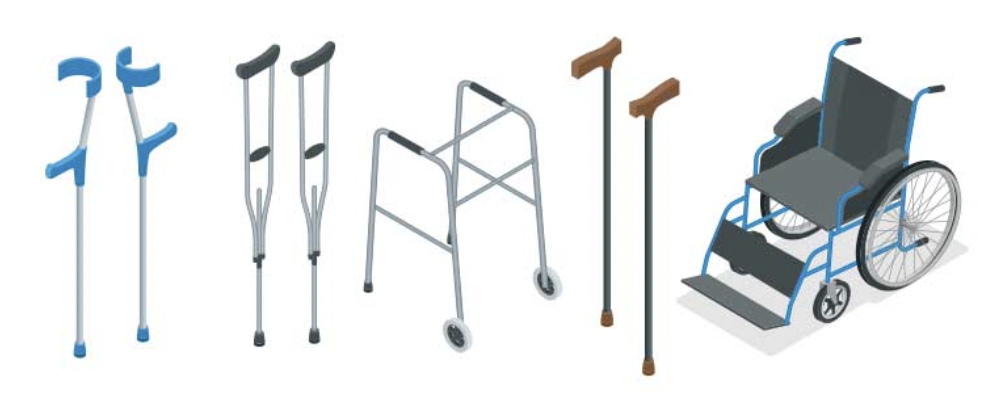Choosing the right mobility aid is essential for maintaining independence, safety, and comfort. Whether you need support due to aging, injury, or a medical condition, the right mobility device can improve your quality of life. With various options available, understanding their features and benefits will help you make the best choice.
Before selecting a mobility aid, assess your specific needs. Consider factors such as balance, strength, endurance, and the environments in which you will use the aid. Consulting a healthcare professional can help determine the most suitable option for your condition.
There are several types of mobility aids designed for different levels of support. Understanding their functions can help you make an informed decision.
Canes provide minimal support and are ideal for individuals who need assistance with balance but can still walk independently. They come in various styles, including:
Canes are best suited for those who require slight assistance in maintaining balance or reducing strain on a weaker leg.
Walkers provide more support than canes and are useful for individuals who need additional balance and weight-bearing assistance. They come in different variations:
Walkers are excellent for those who need significant balance support but can still walk short distances.
Wheelchairs are designed for individuals who cannot walk or have limited mobility. They are available in manual and electric models.
Wheelchairs provide the highest level of support for those with severe mobility hiring limitations.
Mobility scooters are motorized devices suitable for individuals who can sit upright but need assistance traveling long distances. They offer:
Mobility scooters are ideal for those who can walk short distances but require support for longer outings.
Determine how much support you require. If you need minimal assistance, a cane or walker may suffice. If walking is difficult, a wheelchair or scooter is a better option.
If you travel frequently, opt for lightweight or foldable mobility aids. Canes, collapsible walkers, and travel scooters are excellent choices for portability.
Selecting the right mobility aid depends on your lifestyle and daily activities. Consider the following:
A doctor, physical therapist, or occupational therapist can assess your mobility and recommend the most suitable aid. They can also help with adjustments and training to use the device correctly.
Choosing the right mobility aid ensures comfort, safety, and independence. Whether you need a simple cane, a supportive walker, or a powered wheelchair, understanding your mobility needs and lifestyle helps in making the best decision. Always test different options, consult professionals, and prioritize comfort to enhance your mobility experience.
Company Name: Gilani Engineering
Web Address: https://www.gilaniengineering.com.au/
Email: [email protected]
Phone: +61 2 8740 8963
Address: Gilani Engineering, 14 Smithfield Rd, Smithfield NSW 2164, Australia